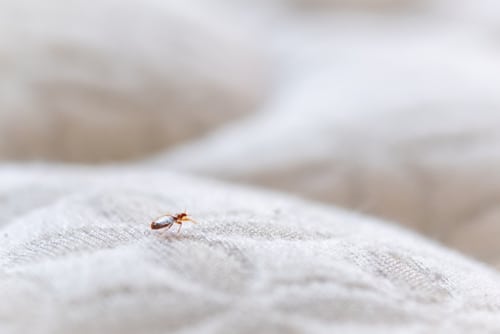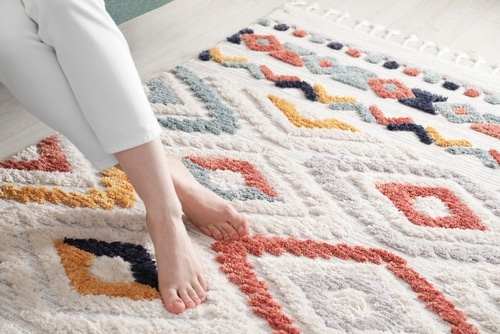
Can Sofa Cleaning Keep Pests Away?
October 16, 2023
The Dos and Don’ts of Wool Carpet Cleaning
November 9, 2023How to Remove Tough Stains from Carpets Naturally?

How to Remove Tough Stains from Carpets Naturally? Maintaining a spotless carpet is a challenge, especially in homes where carpets endure daily foot traffic, spills, and the energetic play of children and pets.
The use of harsh chemical cleaners can cause concern for households committed to natural living as they seek to limit exposure to toxic substances.
The objective of this comprehensive guide is to present natural methods for effectively tackling tough carpet stains, ensuring that carpets remain a clean and vibrant part of the home while upholding a commitment to health and the environment.
Rather than the DIY option, you can always drop us a call for our carpet shampooing services. We’ll take care of your carpets from those stubbonr stains.
Read on – How to Remove Tough Stains from Carpets Naturally?
Table of Contents
Natural Cleaning Philosophy
Natural stain removal not only aligns with eco-friendly practices but also protects the health of household members by reducing exposure to harsh chemicals. It also preserves the integrity of carpet fibers that aggressive cleaning agents can damage.
Opting for natural cleaning methods contributes to a healthier indoor air quality and reduces the environmental impact of pollutants. Natural alternatives are often less allergenic, safer for children and pets, and readily biodegradable.
Before diving into natural stain removal, it’s important to assemble a toolkit that includes items like white vinegar, baking soda, club soda, lemon juice, and clean cloths. Equally essential is the mindset that patience and persistence are key to tackling stains naturally.
Pre-Treatment Practices
When a spill occurs, immediate action is crucial. Quickly blotting up the excess prevents the stain from setting deep into the carpet fibers.
Blotting is gentle and effective, lifting the stain without spreading it further or damaging the carpet pile. Rubbing, on the other hand, can cause the stain to set more deeply and can fray the carpet fibers.
Simple pre-treatment solutions can be made from pantry staples. A mixture of cold water and vinegar, for example, can treat a variety of stains without the use of commercial cleaners.
Natural Stain Removers and Their Uses

Vinegar – The All-Purpose Stain Remover
1. Creating a Vinegar Solution for Different Types of Stains
Different concentrations of vinegar solutions can be prepared depending on the stain’s severity. Generally, a one-to-one ratio of water to vinegar can address most stains.
2. Application Techniques for Maximum Efficacy
Applying the solution with a spray bottle and blotting with a clean cloth can maximize vinegar’s cleaning power without oversaturating the carpet.
Baking Soda – For Absorption and Deodorization
1. Methods for Using Baking Soda on Wet and Dry Stains
Baking soda is excellent for absorbing spills when applied immediately and can be vacuumed once dry. For set stains, a paste made with water can lift and deodorize.
2. Combinations with Other Natural Agents
Baking soda can be combined with vinegar for a fizzy reaction that lifts stains or used after a vinegar treatment for additional deodorization.
Club Soda – The Carbonated Solution
Club soda helps lift stains from carpet fibers, making it especially useful for colorful or acidic stains like wine or fruit juice.
Applying club soda while still bubbling and blotting it up can prevent the stain from spreading or setting.
Specialized Natural Stain Treatments

- Salt for Red Wine and Grease Stains: Salt can absorb fresh red wine spills, while a paste of salt and alcohol can tackle grease.
- Lemon Juice for Natural Bleaching: Lemon juice acts as a natural bleach and can be effective on lighter carpets, often used to treat rust or mildew stains.
- Cornstarch for Ink and Oil: Cornstarch mixed with milk creates a potent cleaner for ink stains, while plain cornstarch can absorb oil.
The Power of Sunlight and Fresh Air
Sunlight has natural bleaching properties that can aid in stain removal, especially after applying a natural cleaning treatment.
Allowing fresh air to circulate can help dissipate any lingering odors and expedite drying, ensuring no mildew can form.
Mechanical Actions to Complement Natural Stain Removal
Gentle Scrubbing Techniques
Using a soft brush to work in natural cleaning solutions gently can be effective, though it’s important to use light strokes to prevent damage to the carpet fibers.
Steam Cleaner
A steam cleaner can be used with just water as a natural way to lift deep-set stains, although care must be taken not to overwet the carpet.
When to Use a Brush or Cloth
A brush can be used for scrubbing in natural cleaners, while cloth is better suited for blotting up liquids and patting dry treated areas.
Prevention and Regular Maintenance

- Educating all household members on how to respond to spills immediately can prevent many stains from occurring.
- Routine vacuuming and spot cleaning with natural products can keep carpets in good condition and reduce the frequency of deep cleanings.
- A no-shoe policy reduces the amount of dirt and potential stains, while strategically placed rugs can protect carpeted areas from spills and stains.
Tough Stains That Require Special Attention
- Natural Solutions for Pet Stains: Enzyme-based natural cleaners can break down pet stains and odors without harsh chemicals.
- Approaching Oil-Based Stains Naturally: Cornstarch, baking soda, and some elbow grease can address oil-based stains more safely than chemical alternatives.
- Combating Food and Drink Spills: Combining vinegar, baking soda, and sometimes lemon juice can effectively tackle most food and beverage spills.
Frequently Asked Questions

What are some common household items that can be repurposed for stain removal on carpets?
Household items such as hydrogen peroxide, dish soap, and essential oils can often be found in the pantry or medicine cabinet. They can be utilized as a part of your natural carpet cleaning arsenal.
For instance, hydrogen peroxide can act as a mild bleach for light-colored carpets, while a mild dish soap can help lift grease and oil stains without harsh chemicals.
Additionally, certain essential oils can effectively add a pleasant scent to your cleaning solution and provide mild antibacterial properties.
Can ice be used in the natural stain removal process, and how?
Yes, ice can be an invaluable tool for certain types of stains. For example, it’s particularly effective at removing gum or wax from carpet fibers.
The technique involves placing ice in a plastic bag and then setting the bag on the gum or wax to harden it. Once the substance is solidified, it can be gently scraped off with a spoon or dull knife, significantly reducing the risk of the carpet fibers pulling or tearing.
Is it possible to naturally disinfect carpets, and which natural products are best for this purpose?
Disinfecting is a vital cleaning aspect, especially in homes with small children or pets. While vinegar and baking soda are widely recognized for their cleaning power, they also have natural disinfecting properties.
Vinegar, in particular, is known for its ability to kill certain types of bacteria and viruses.
For a more profound disinfecting action, you can consider using a natural disinfectant like tea tree oil, which has antimicrobial properties and can be added to homemade cleaning solutions.
How can I maintain the fresh smell of my carpets using natural products?
To maintain a fresh smell, natural deodorizers such as baking soda can be sprinkled on the carpet and left to sit for several hours or overnight before vacuuming.
This can absorb odors and leave the carpet smelling clean. A natural carpet freshener can be made using baking soda mixed with a few drops of essential oils like lavender, lemon, or peppermint.
The mixture can be sprinkled on the carpet and then vacuumed, leaving a fresh scent without artificial fragrances.
Are there any natural remedies for fading carpet stains that have been set for a long time?
While fresh stains are always easier to treat, certain longstanding stains can be tackled naturally.
A paste made of lemon juice and cream of tartar has a bleaching effect for light carpets and can be used to treat older or discolored spots.
For darker carpets, a baking soda and water paste can be applied to the stain, allowed to dry, and then vacuumed up.
It’s essential to spot-test any remedy in an inconspicuous area first to ensure no discoloration or damage to the carpet fibers.
How to Remove Tough Stains from Carpets Naturally? – Conclusion

The effectiveness of natural remedies in removing tough carpet stains has been underscored throughout this guide.
The importance of immediate action and regular maintenance cannot be overstated, as these practices are critical to preventing permanent damage.
With many natural solutions at your disposal, trust in these methods to provide a safer, cleaner living space.
Encourage experimentation with these techniques, adapting them as needed to suit the unique needs of your household and its commitment to natural living today!
Are you looking for professional and reliable upholstery cleaning or carpet cleaning services in Singapore? Contact us today!

